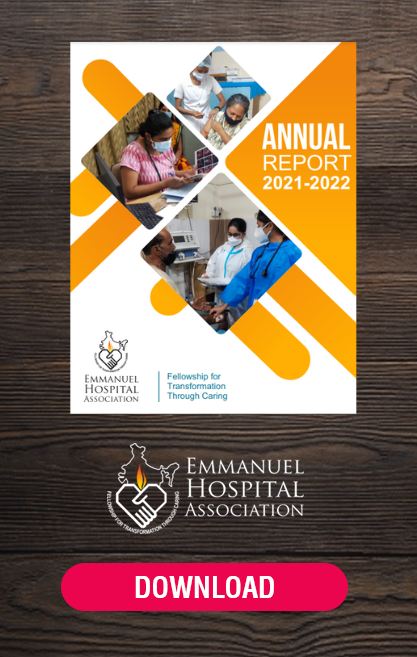EHA Nursing Department
We thank God Almighty for all His blessings, and we are pleased to highlight the most recent contributions made by the EHA's nursing departments.

Prologue
It is difficult to narrate the report without acknowledging the unfortunate backdrop of COVID-19. The covid pandemic has taken its toll on many people and thus affected families. Yet, EHA nursing provided a supportive environment for every nurse to perform professionally. When I flip through last year, two definite themes emerge through this challenging year: Perseverance and Accomplishment. We want to express our gratitude to the nursing professionals who worked tirelessly, thoughtfully, and committedly during the first, second, and other waves of Covid-19 by seeing cases of COVID-19, saving lives or giving comfort in the face of death, and educating themselves and the public about protective measures to stop the spread of infection.
EHA Nursing Team
In EHA, nurses comprise half of all healthcare professionals and are vital in organizing and applying health activities at the front-line and managerial levels. EHA nursing staff, as usual, are working with good team spirit, supporting each other professionally and personally. In addition, it is impressive to see the nurses' cordial relationships with patients and their relatives; this creates a healthy atmosphere in the hospital and goes a long way in establishing a good hospital reputation.
The EHA nurses strive to provide an effective, organized, systematic nursing approach by applying three nursing processes. First, assessment is an initial and continuous element of the nursing process. Second, planning and implementation, where nurses formulate and implement the care; and third, evaluation, which decides whether the action has met the identified needs, making it easier to assess comprehensive nursing care.
Learning from a Global Perspective
We have an excellent relationship with EHA USA and EHA Canada, DVN-VIAA is a University of Applied Sciences in the Netherlands, HITS (Healthcare India Training and Support) New Zealand, Dignity Health USA, and a few individuals from the USA, UK, and Canada. EHA India engages with these supporters by participating and learning from their leadership on technical and healthcare systems.
Neonatal Survival Training Program (NeST)
Presently, in India, prematurity/preterm birth (35%) is the leading cause of newborn death, followed by neonatal infections (33%), intrapartum complications/birth asphyxia (20%), and congenital deformities (9%). Currently, there are estimated 7.47 lakh neonatal deaths annually. However, neonatal deaths are expected to be below 2.28 lakh annually by 2030. The NeST program, supported by EHA Canada, is working to equip health personnel in the hospitals and community to add on to bring down the Neonatal Mortality Rate. The NeST objectives specify: "All health care workers in EHA hospitals have the knowledge and skills to take care of neonatal problems to reduce neonatal deaths in the geographic area where we serve. And to be leaders in providing neonatal care training to private and government health care facilities around us".
EHA Nursing Workshop
A nursing workshop is organized by the Emmanuel Hospital Association every year. The workshop aimed to transform nursing education and services in EHA hospitals by empowering nurse leaders. Attending workshops for EHA nurses can assist in keeping them up to date on the most recent advancements and demonstrate that they are lifelong learners. As a result, nurses will have a better chance of saving more lives with updated knowledge through workshops.
Integration of Nursing Service and Nursing Education
The Indian Nursing Council (plus CMC Vellore) introduced the idea of integrating nursing service and education. The EHA management took the suggestion and implemented the Dual role in most nursing schools. By doing this, qualified faculty from the nursing schools contribute their knowledge in the clinical field, and the senior nursing staff from the hospital will be involved in the training and supervision of student nurses. The Dual role is well appreciated by other disciplines and accepted as a component of the health team, bringing changes in health quality and promoting Health for All.
NABH Accreditation
The Health Care System of India is currently operating in a rapid social, economic, and technological environment, and hospitals are an integral part of the healthcare system. The NABH accreditation enables hospitals to demonstrate a commitment to quality care and patient safety, ensuring the best clinical outcomes. The nursing staff is the most vital resource of the hospital and health care system. So there is the utmost need of the hour to improve nurses' knowledge concerning NABH standards to provide quality services to the patients and further develop knowledge and skills in practice.
Continue Nursing Education (CNE)
In EHA hospitals, the Continue Nursing Education (CNE) is conducted, and attendees receive credit hours. As part of CNE, regular tests are being conducted to stimulate and encourage better learning, including practical tests as required. In addition, the CNE enables the staff to study clinical issues, work with others, face the challenge of technological change, maintain health standards at an acceptable level, and motivate the team for better patient care.
Opportunities and Challenges
- The Indian Nursing Council has notified, per the Ministry of Health and Family Welfare Government of India's directives, to implement the revised National Health Policy. Therefore, a step toward standardizing only a single-entry level will be in India. Thus, there is a need to upgrade the Nursing School to the College of Nursing.
- In EHA, nurses can continuously update their knowledge through all the resources available to meet diversified challenges they come across in their day-to-day practice.
- We face recruitment and retention challenges with increasing workload, demand, and post-pandemic impact in healthcare.
- In order to provide services that are fit for the future, nursing staff needs to be updated and trained in the latest techniques and skills. In addition, we need to prepare specialized nurses by encouraging them to do post-basic diploma courses, thus extending and expanding nurses' roles.
- To plan for a yearly workshop to bring about transformation in nursing education and practices in EHA by empowering the nursing leaders.
Conclusion
We wish to extend our gratitude to all sponsors and donors from India and around the world for their gracious contributions. In addition, we would like to thank the Executive Director, Regional Directors, EHA central team/Units/CHDP/Nurses/Visiting Lecturers/Guests for their ongoing support and prayers. Finally, we acknowledge God's provision and the continued support to the EHA nursing department.
Contact
Vinay John
Nursing Director EHA
vinayjohn@eha-health.org



